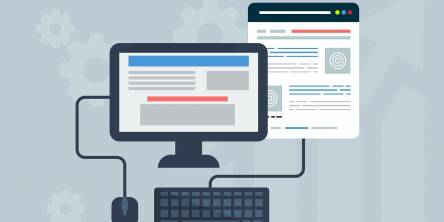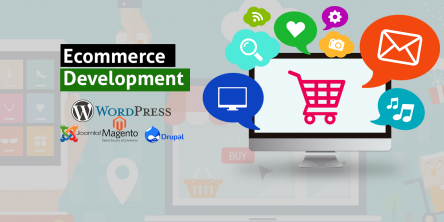What is the Actual Value of Functional Testing in Retail?

When compared to other sectors, the retail business is the one that is most affected by digital transformation because of the quick pace at which the industry is changing. The reputation of the shop is placed in difficulty when customers see unsatisfactory service provided either in person or via an e-commerce app.
Functional testing is often regarded as the component of a quality assurance process that is considered to be of the utmost significance. Because it verifies that the application in question fulfills the goals for which it was developed, Functional Testing is something that is highly advised to be used right at the start of the software development life cycle (SDLC). Nevertheless, it is never too late to start enhancing the functioning of your application, particularly if visible difficulties start to emerge.
After all, having functionality that is not up to par implies that consumers have a poor-quality experience, which may significantly influence their satisfaction. Functional testing can include black box testing, simplifying the user interface, trying to check protection, shoring up interconnection to APIs and database systems, trying to improve customer information exchange, and several other features.
Retail companies that provide functional testing solutions offer a comprehensive range of services designed to reduce the likelihood of undesirable outcomes. These services include analyzing the response times that customers will encounter when shopping online and calculating the maximum number of customers that your online storefront can accommodate, as well as evaluating the user experience across a variety of platforms, browsers, and devices.
What are the main tools of Functional Testing used in the retail sector?
Checking the software in terms of the user interface, database, security, and client/server applications of the program being tested is an essential part of functional testing. Testing may be carried out either manually or automatically (using automation). Due to the high expenses associated with functional testing, manual testing is often recommended. However, the increased availability of open-source tools has piqued the interest of businesses in trying out all testing. The following are some of the most well-known and highly regarded open-source tools for functional testing.
-
Selenium
Web automation technology known as Selenium may be utilized to carry out tasks such as automating website browsers. The ease of use and breadth of browser compatibility offered by Selenium have contributed to its widespread adoption. Tests on websites, mobile applications, and online applications may all be automated with the help of Selenium. The Selenium tool is widely used and has a sizable community of supporters that may be found online. The functional testing of desktop programs and online apps is both possible and easy using Selenium. The ability to run automated tests an unlimited number of times without incurring any extra costs is one of the primary advantages brought about by the migration to Selenium, which comes with a host of other advantages.
-
Cucumber
Since it offers an easily comprehensible challenging script for method acceptance this Cucumber software tool is extensively used for Behaviour Driven Development (BDD). Behavior development is the methodology that was used while scripting the tests. As a result of its accessibility, readability, and incorporation of business functions, Cucumber has become one of the most popular tools for a wide variety of projects. Cucumber is becoming more popular among companies, mostly as a result of the code's very straightforward readability.
-
HP QTP
An automated functional testing tool, HP QTP, is what the company calls itself. Although QTP is a pricey product, the fact that it can handle desktop, online, and client-server applications more than makes up for the cost. Once script creation is finished, this solution makes it easier for testers to carry out automated functional testing in a seamless manner, without the need for monitoring. To interface with a wide variety of technologies, QTP provides some plug-ins. The majority of the time, it is used for web-based application development for both clients and servers.
Benefits of Functional Testing in the Retail Industry
When it comes to doing business in an industry that is always changing, having high-quality online, mobile, and point-of-sale technology is essential for merchants who want to stay current with the competition. The integration of digital and non-digital channels, as well as the level of security, performance, and delivery that it provides, are used to determine whether or not Omni channel commerce is successful. Let us check some of the benefits
1. Enhance the Coverage for Omni Channel Apps
Apps that work across several channels have completely revolutionized the retail sector. Through functional testing, customers are now put at the center of a growth strategy to buy in-store, online, and even over the phone with a single app that can do it all. Despite this, merchants have not seen the kind of success they had hoped for from Omni channel applications. Merchants need to expand the scope of their Omni channel applications to reach a greater number of potential consumers. Retail businesses may benefit from automated software testing for retail applications since it can test apps automatically, hence reducing the chance of quality issues.
2. Carry Out Using Intelligent Automation
Functionality is one of the most effective strategies for ensuring that the product being developed has no bugs. You will be able to direct your attention, thanks to automation, to the thing that concerns you: your product. Software testing in the retail industry has become more productive and practical as a result of the use of automation testing that is AI- and ML-based to design and deal with test cases or automation testing methodology. They can uncover faults and offer testing teams the ability to rectify them more quickly.
3. Testing of Non-Functional Features
Non-functional testing is a complete necessity for retail procedures and structures and tools to protect effectiveness, safety, as well as connectivity circumstances. This is because any power in the exact area can lead to a decline in functionality also the quality of the customer experience, which in turn causes a business from customers. Applying test automation to non-functional testing allows you to push non-functional testing, where it belongs, so that problems may be found and fixed sooner in the product's lifecycle.
4. Enhance your customer service culture
Client service is among the characteristics of a company's culture, which are considered to be among the most significant. This is also the very initial stage where clients notice a company, and it is also something that can be altered better to meet the requirements of the business of your company. You may establish a quality culture and performance in the customer service department of your company by computerizing the testing procedure.
Bottom Line
The retail industry is thriving, and with it comes an increase in testing. Companies have had a callous time measuring data based on their actual performance in the real world. If you grasp these advantages, you will be able to use testing to its full potential in your company. Functional testing solutions provide global retailers with a retail app testing solution that enables these retailers to provide superior experiences to their customers and enhance their overall company success.
Similar Articles
Explore the power of Scala in modern web development! Discover its advantages, best practices, and real-world case studies. Elevate your coding journey today.
Do you know 24% of retail purchases will be online by 2026? Hence, eCommerce development is the trend, providing lucrative business opportunities to budding entrepreneurs. However, developing an eCommerce website is not an offhand process.
Wave goodbye to the cost and efforts of separate web application development for every operating system out there just to reach your customer base. Progressive Web Apps (PWAs) are here to open up a whole new world of accessibility for you.
Your website is the center of your business’s digital ecosystem, just like a brick-and-mortar shop. What matters here is the perception of the prospective customer visiting and the experience one is taking away.
When you are an entrepreneur, every decision you make needs to be well-informed and strategic. As every decision you make will impact your bottom line and your ability to grow. That's why thinking carefully before choosing any eCommerce platform is essential.
Are you a business owner planning to establish an online presence but unsure of the web development cost? A well-designed and functional website is crucial for a business’s success. However, determining the cost of web development is one of the common challenges faced during the website development process.
The increasing prevalence of cyber threats and the potential risks associated with data breaches make it crucial to implement robust security measures. This helps protect your business, customer information, and brand reputation.
In the age of digital technology, every business must have an online presence. A website is crucial in establishing this presence, making web development an integral part of modern business. To create a successful website, choosing a reliable web development platform is imperative.
App developers have discovered React Native app development to be the key to building robust mobile applications, a trend that has increased since 2015.





e6f0.png)



